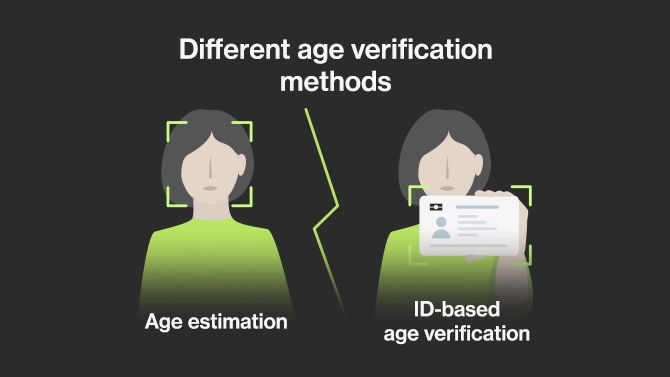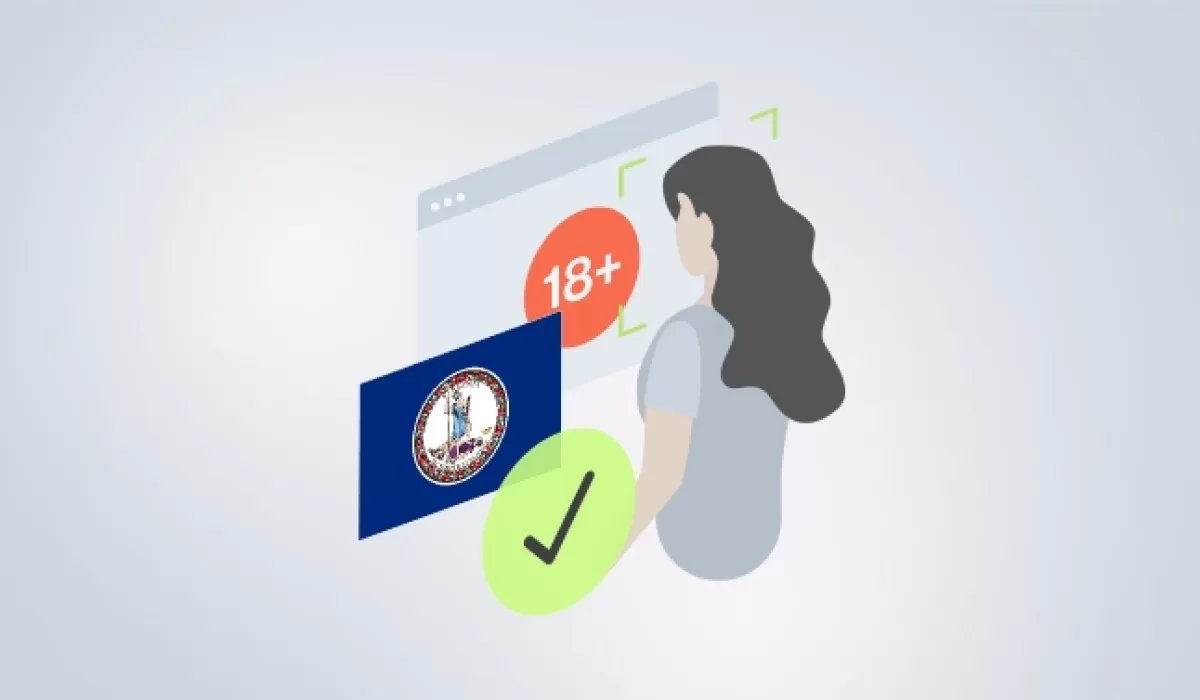In July of 2023, the state of Virginia amended Senate Bill 1515 in a nearly unanimous vote. The amendments focused on protecting minors from harmful content online, giving special attention to adult content and allowing individuals to sue pornographic websites.
The response to the amendments has varied, with many pornographic websites choosing to halt operations in Virginia rather than implement age verification methods and their users using other means to easily access blocked websites. In this article, we will look into the law itself, the measures it requires to verify users age and the response to the law.

Amendments Added to Senate Bill 1515
The amendments agreed upon in Senate Bill 1515 state that:
Any commercial entity that knowingly or intentionally publishes or distributes material harmful to minors on the internet must implement required age verification methods or identity verification to curb children’s access to adult content in order to protect their safety online.
The age verification methods mandated in the bill find the following processes acceptable:
- The use of a commercially available database that is regularly used by businesses or governmental entities for the purpose of age and identity verification.
- The use of another commercially reasonable method of age and identity verification.
Any commercial entity that fails to implement proper age verification measures will be subject to civil liability for damages resulting from a minor’s access to such material harmful to a minor and reasonable attorney fees and costs.
Age Verification Regulations Around the World
Age Verification Methods
Many Virginians have turned to Virtual Private Networks (VPNs) that can easily grant access to blocked websites in Virginia following the amendments to Senate Bill 1515. However, this can be solved by employing the correct age verification requirements. In the last years, age verification technology has seen major improvements, making it easier and more comfortable to use than ever before. The two most widely accepted solutions are:
ID-based Age Verification: This method involves users submitting a photo of their government issued identification along with a photo of themselves for biometric comparison, ensuring a secure and efficient verification process. For instance, Ondato’s age verification system can complete this process in under 60 seconds with zero tolerance for fraud.

Age Estimation: These tools reduce the need for identity documents by using facial biometric data to classify users into age groups. Ondato’s system typically onboards most users without requiring additional documents, only requesting IDs when necessary.
Still, an analysis done by the Virginia Mercury shows that the majority of these websites are not using age verification methods as mandated. According to Virginia Mercury, only one website of the 65 best adult content sites is using appropriate age verification methods. With many pornography websites choosing to block access to their services instead.
The Response
The law, championed by state Senator Bill Stanley and signed by Gov. Glenn Youngkin, received widespread support in Virginia’s General Assembly. It enables individuals to sue content providers if minors access harmful material.
Stanley emphasized the law’s importance in safeguarding children from exposure to inappropriate content, stating, “If we’re going to sit here and just say, ‘Well, there’s nothing we can do about it. It’s the, you know, darn old internet,’ then we’re abrogating our responsibility to our children.”
Despite its good intentions with online safety, the law has faced criticism and potential legal challenges. The Free Speech Coalition, representing the adult entertainment industry, is considering contesting the law in court, having already opposed similar age verification laws in Louisiana and Utah.
Critics argue that the law’s effectiveness is questionable. After Louisiana’s similar law took effect, users easily circumvented restrictions to be able to easily access adult content by employing a virtual private network.

Additionally, privacy advocates express significant concerns. Jason Kelley from the Electronic Frontier Foundation highlighted the risks of centralised databases, such as those used in Louisiana, being hacked or misused for tracking. Kelley warned against uploading personal information as some unscrupulous websites might exploit age verification prompts to harvest personal information, posing a severe privacy threat. He predicted the law would face First Amendment challenges and noted that some sites might block access rather than comply.
Mike Stabile of the Free Speech Coalition echoed these privacy concerns, stressing that Virginians should be able to use the internet without fearing data collection or tracking due to identity verification methods. “This is not the same as just flashing your driver’s license at a liquor store,” he remarked.
As Virginia’s new age verification law takes effect, the balance between child safety and privacy remains a contentious issue, with ongoing debates and potential legal battles on the horizon.
Last Thoughts
As Virginia’s age verification law takes effect, it aims to protect minors from harmful online content, specifically targeting adult material. The nearly unanimous amendments to Senate Bill 1515 reflect the state’s commitment to safeguarding children’s online experiences. However, the law has sparked varied responses, with many pornographic websites opting to block access in Virginia rather than implement the required age verification methods.
Despite the advancements in age verification technology, which offer secure and efficient solutions such as ID-based verification and age estimation, the implementation and effectiveness of these methods remain contentious. Critics highlight privacy risks and potential legal challenges, raising concerns about data security and the possibility of First Amendment violations.
The debate surrounding Virginia’s age verification law underscores the complex balance between protecting children and preserving privacy rights. As this law unfolds, it will likely continue to prompt discussions and legal scrutiny, reflecting broader concerns about online safety and personal data protection.



